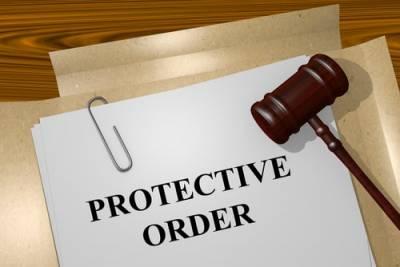How Can a Protective Order Protect the Safety of Family Members?
 There are many different types of situations where a person may fear for the safety of themselves, their children, or other family members or people who live in their home. Whether a person in a family has been the victim of domestic abuse, or conflict between divorcing spouses has escalated to the point of physical violence, those who are in danger of harm can take action to address this issue and prevent a person from abusing, injuring, or threatening them. People in Texas who are in this type of situation will need to understand their options for receiving a protective order that will help keep them and their family safe.
There are many different types of situations where a person may fear for the safety of themselves, their children, or other family members or people who live in their home. Whether a person in a family has been the victim of domestic abuse, or conflict between divorcing spouses has escalated to the point of physical violence, those who are in danger of harm can take action to address this issue and prevent a person from abusing, injuring, or threatening them. People in Texas who are in this type of situation will need to understand their options for receiving a protective order that will help keep them and their family safe.
Types of Protective Orders
Those who are in need of immediate protection can file a petition in court for a temporary protective order, which is also known as an “ex parte order.” If a judge believes, based on the information contained in an application for an ex parte order, that there is a clear and present danger that a person will commit family violence, they may issue a temporary protective order without holding a hearing. This order may prohibit a person from taking specific actions, such as committing domestic abuse, contacting the petitioner or their family members, or entering a shared residence. Temporary protective orders can remain in effect for 20 days, and they can be extended for additional 20-day periods if necessary.
In cases where a person has been arrested on family violence charges, a criminal court judge may issue a Magistrate’s Order of Emergency Protection, and this type of order is mandatory in situations where a person allegedly inflicted serious bodily injury while committing family violence or used a deadly weapon when committing domestic assault. A Magistrate’s Order of Emergency Protection can prohibit a person from committing any further acts of family violence or communicating with members of their family or household in a way that is threatening or harassing. A person may also be ordered to stay away from a family member’s home, school, or workplace, and they may be required to turn over any firearms they own or a concealed handgun license. A discretionary order can remain in effect for 31 to 61 days, while a mandatory order can remain in effect for 61 to 91 days.
If long-term protection is needed, a petition for a protective order can be filed in court, and a hearing will be held to determine whether family violence has occurred and is likely to occur in the future. If a judge believes that it is necessary, they can issue a protective order that may prohibit a person from committing family violence, threatening or harassing family members, possessing a firearm, selling or transferring property, or harming or interfering with family pets. A person may also be required to stay away from certain locations or participate in domestic violence prevention programs, and a protective order may contain provisions regarding possession of a couple’s children, child support, and exclusive possession of a home or residence. A protective order can remain in effect for up to two years in most cases.
Contact Our Austin Protective Order Lawyers
If you, your children, or anyone else in your family or household is at risk of being a victim of domestic violence, Powers and Kerr, LLC can help you take steps to receive the protection you need. We will work with you to apply for the necessary protective orders, and we will advocate for your safety and fight to protect your interests in any subsequent divorce or family law cases. Contact our Austin, TX family law attorneys at 512-610-6199 to learn how we can help.
Sources:
https://statutes.capitol.texas.gov/Docs/FA/htm/FA.85.htm
https://www.txcourts.gov/media/478291/chapter4.pdf
https://statutes.capitol.texas.gov/Docs/FA/htm/FA.83.htm




 512-610-6199
512-610-6199

